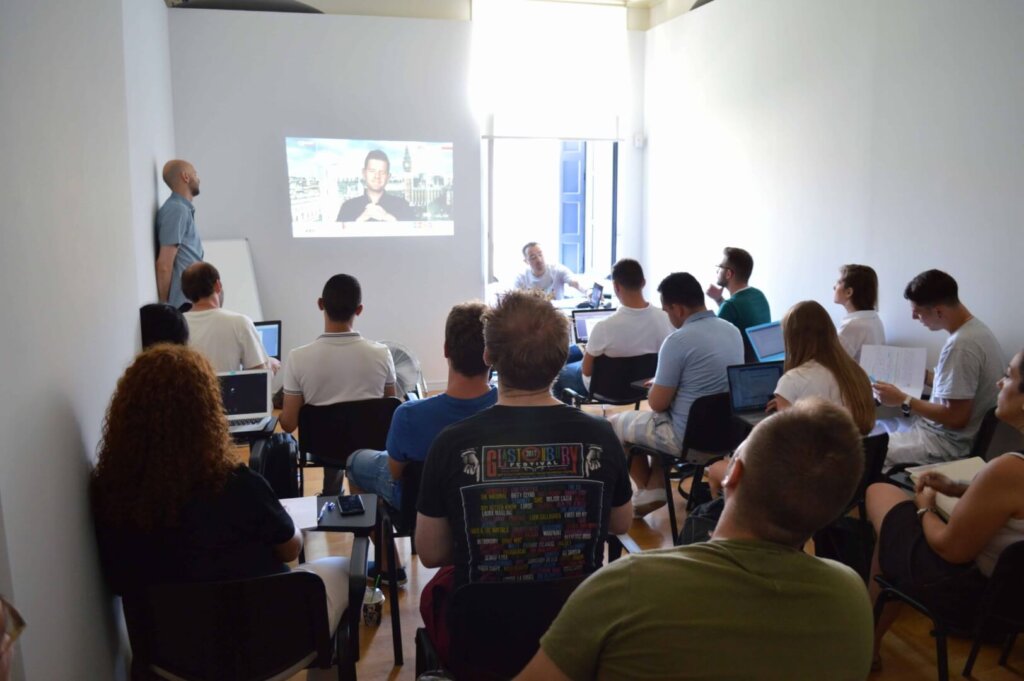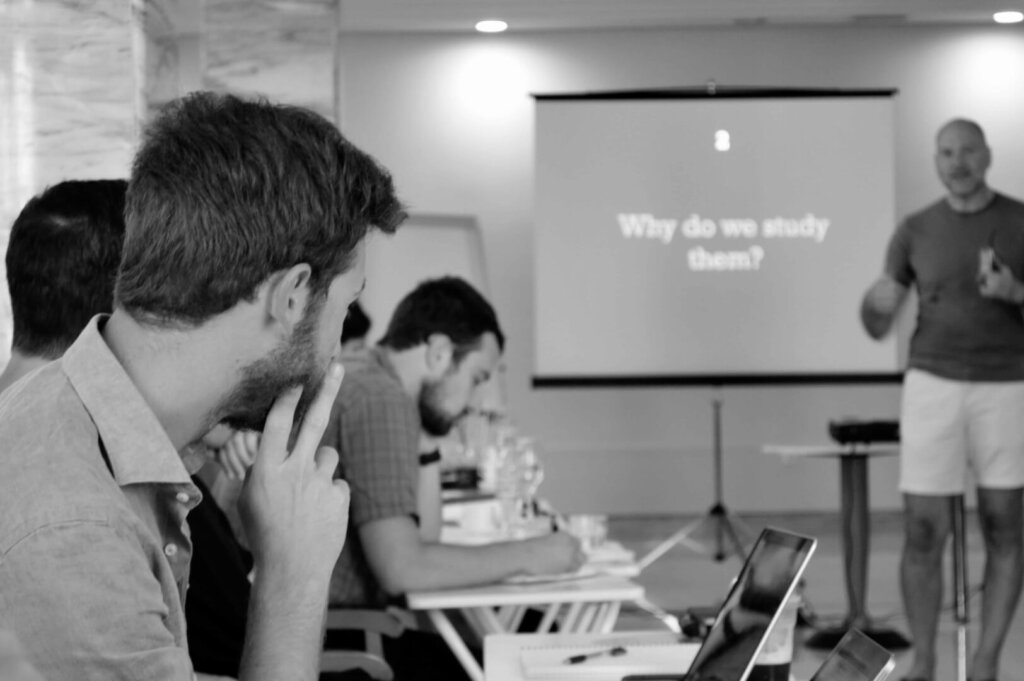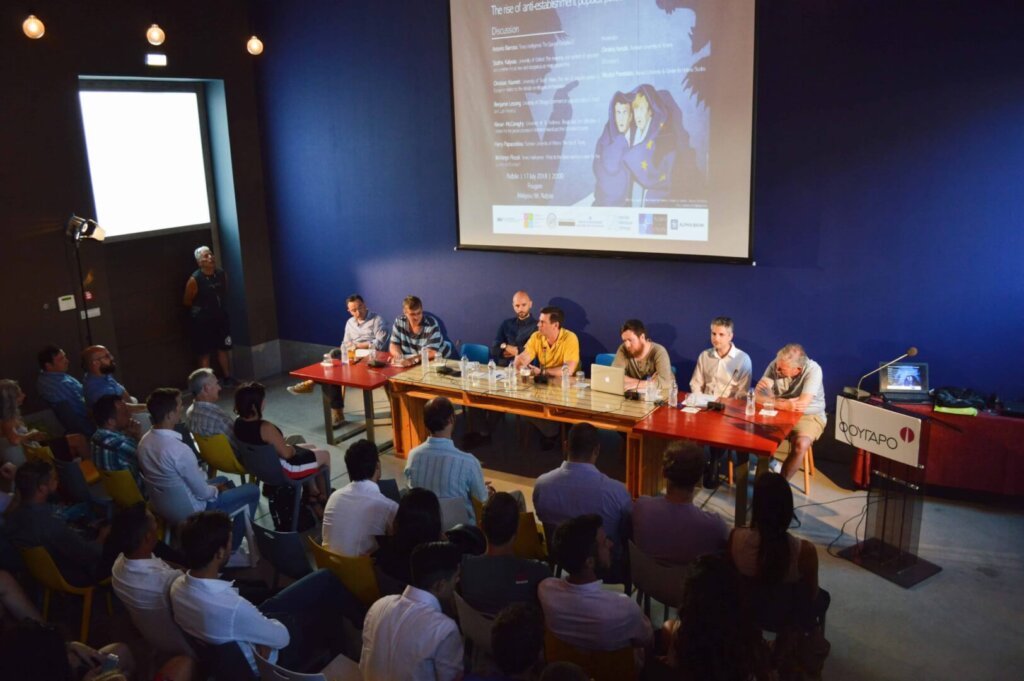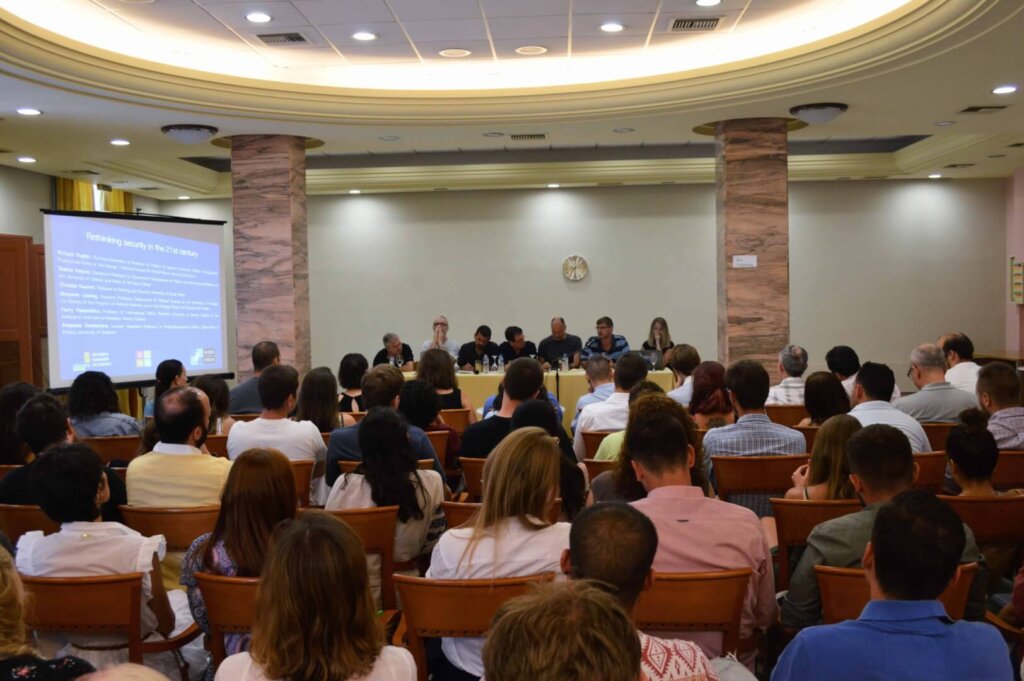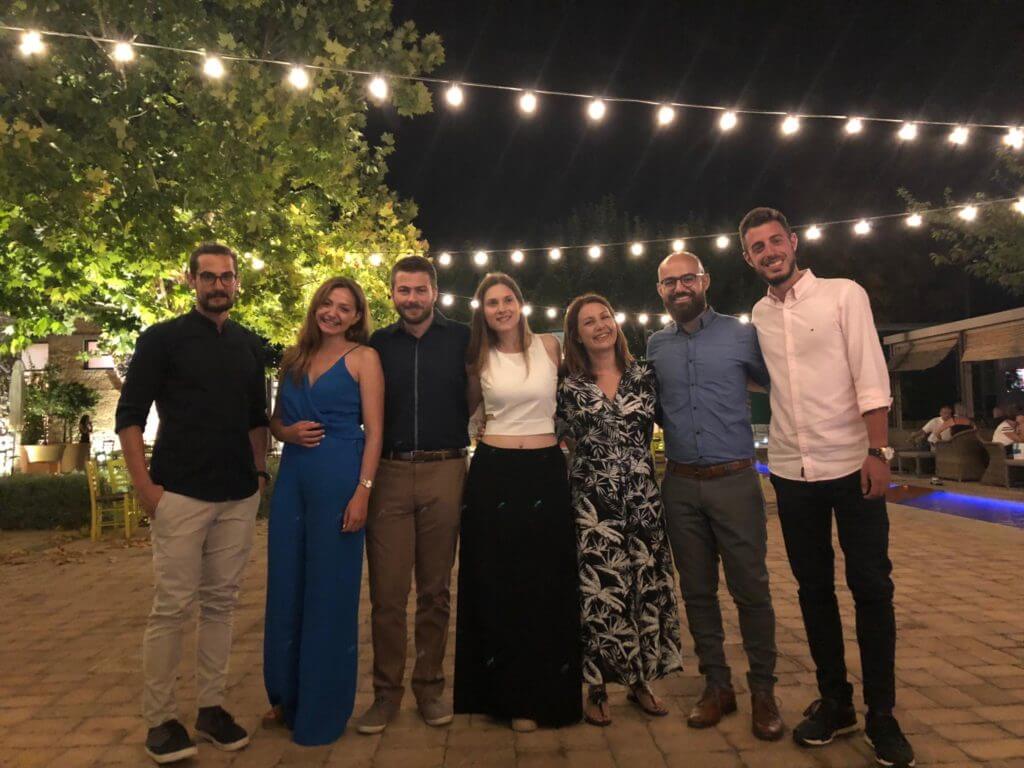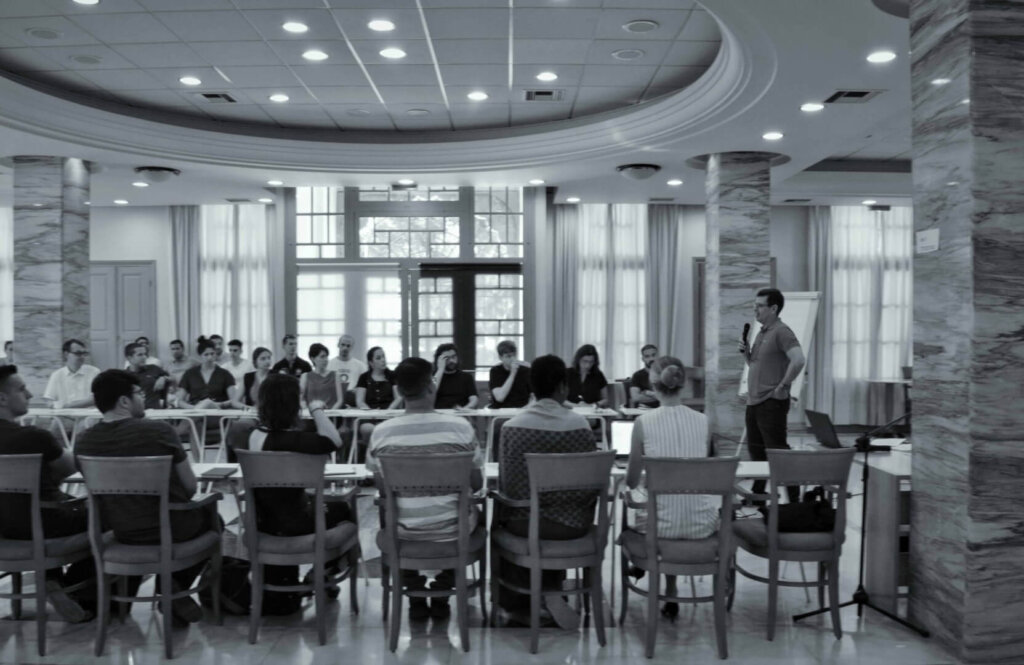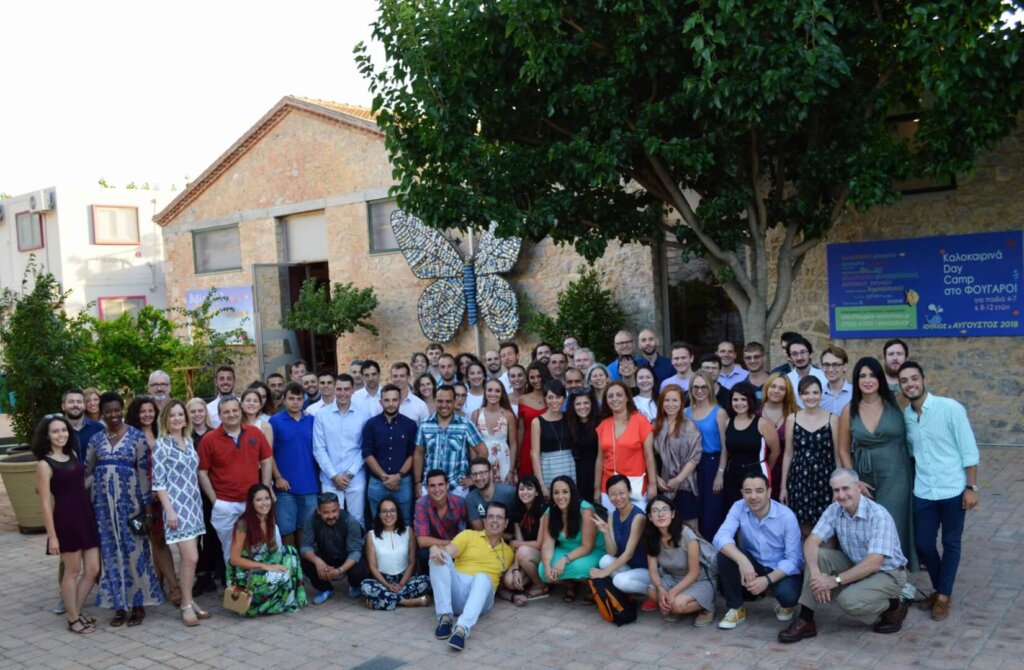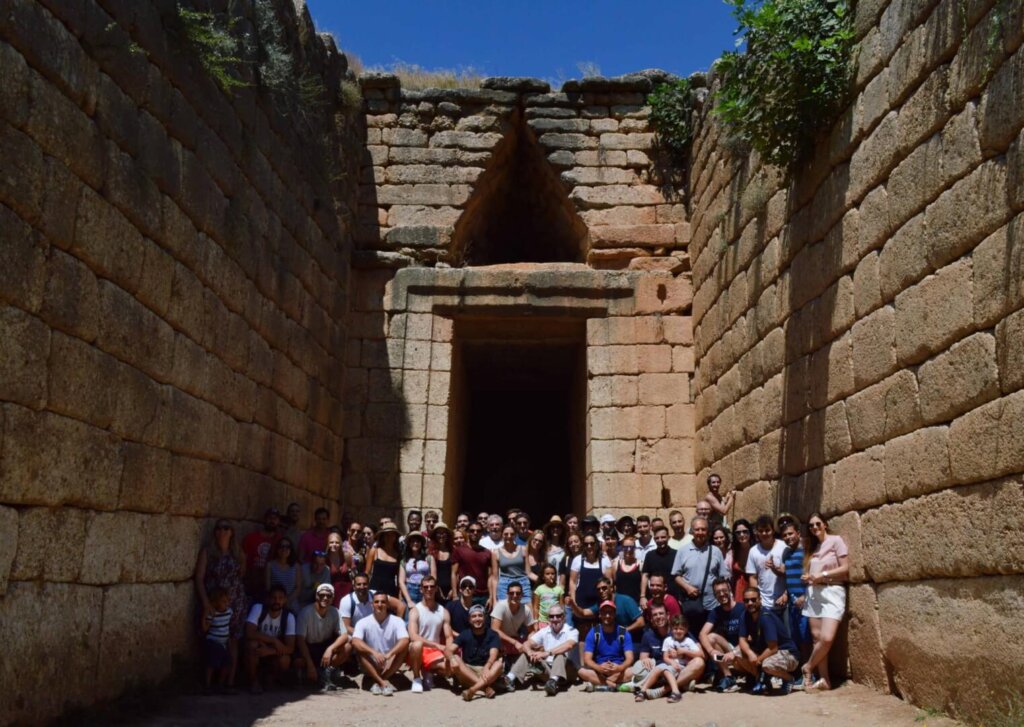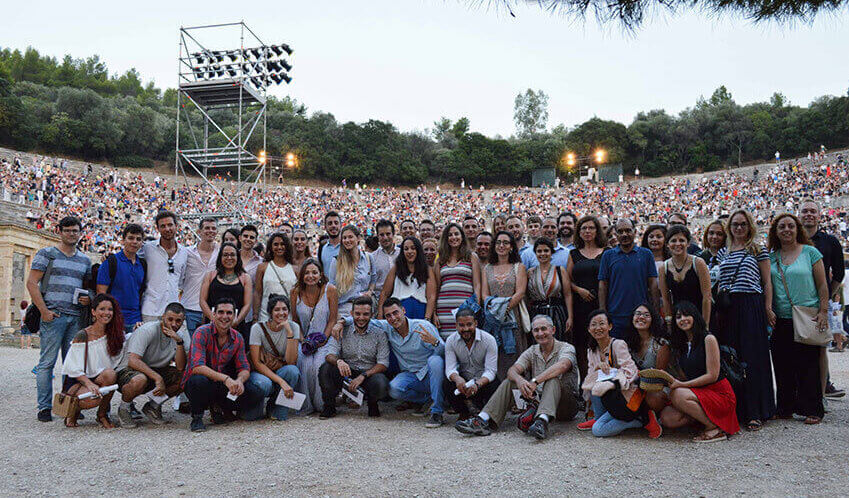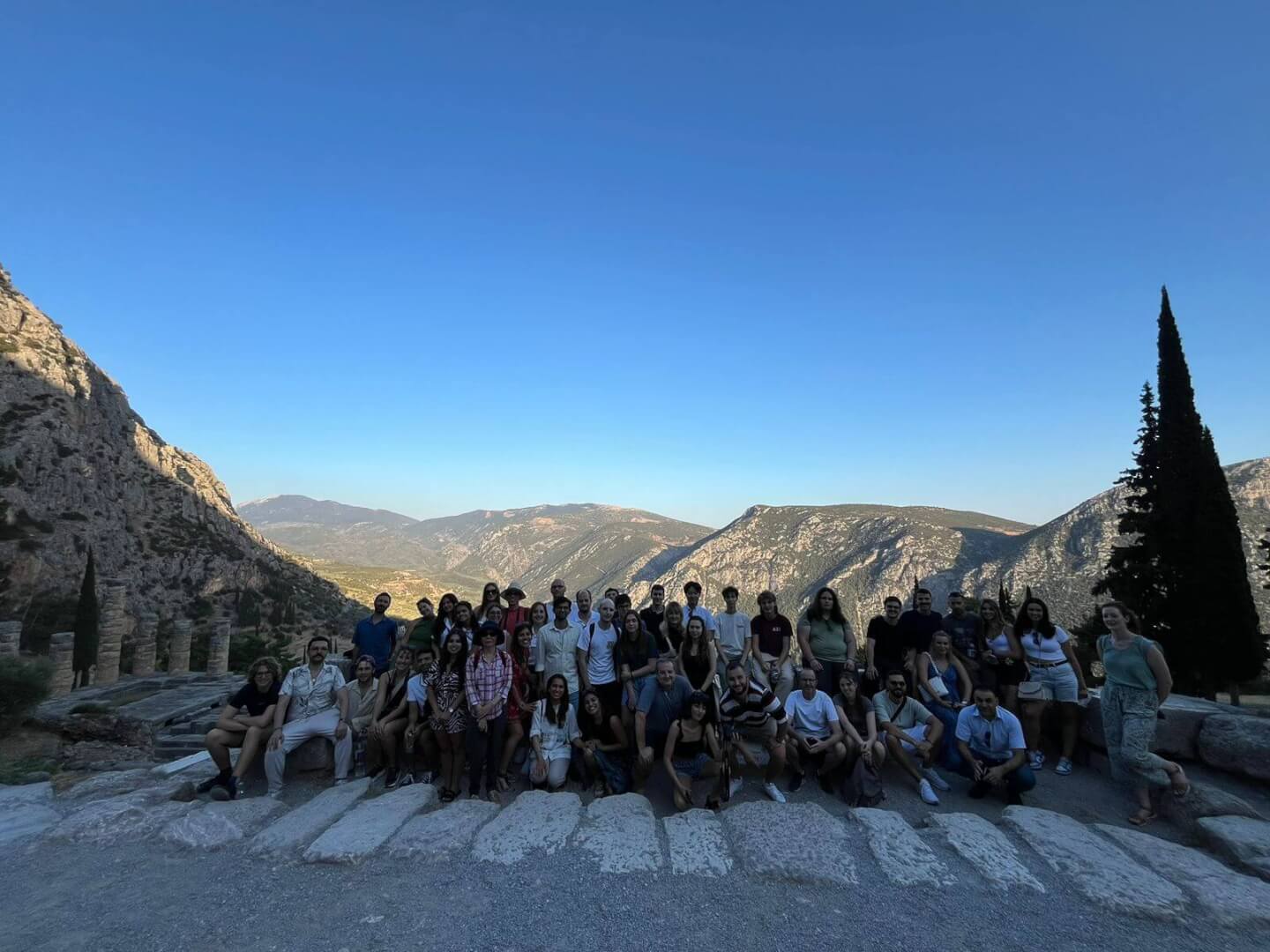Course Structure & Faculty
This year’s Olympia Summer Academy will run in parallel course-cycles:
Conflict & Political Violence
Terrorism and European Security
Political Risk Analysis
July 8-18, 2018
Naflpio, Greece
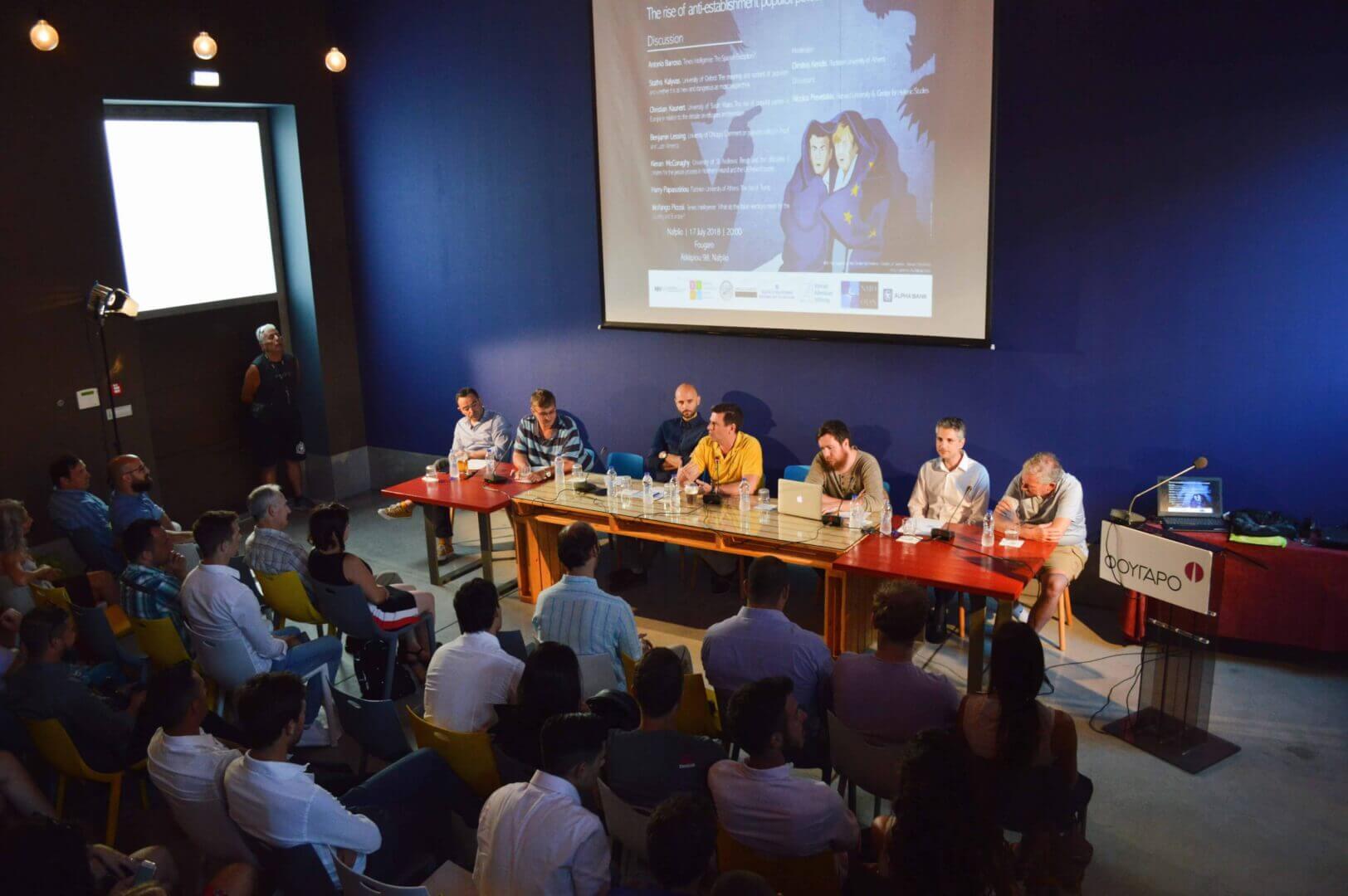
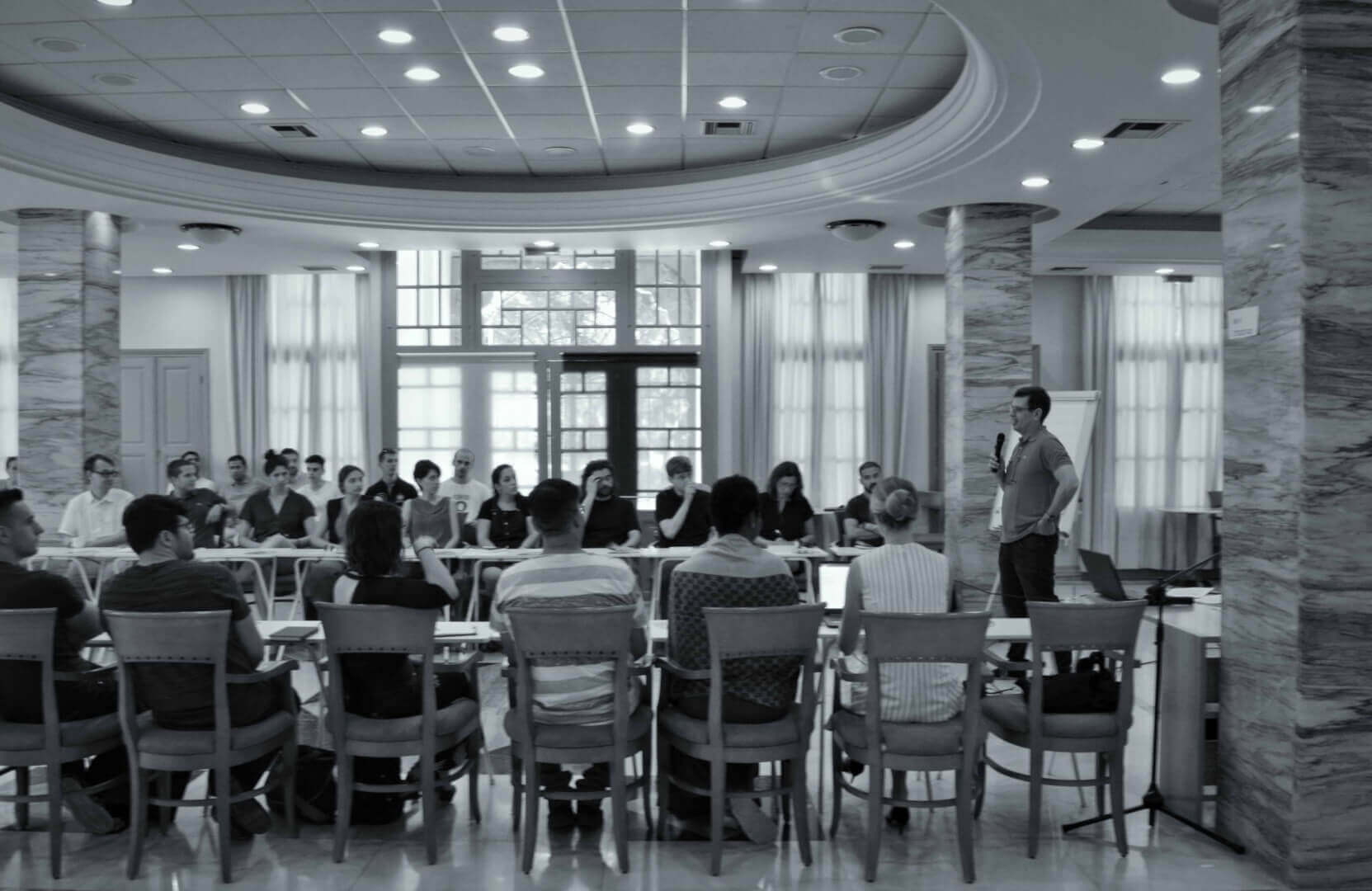
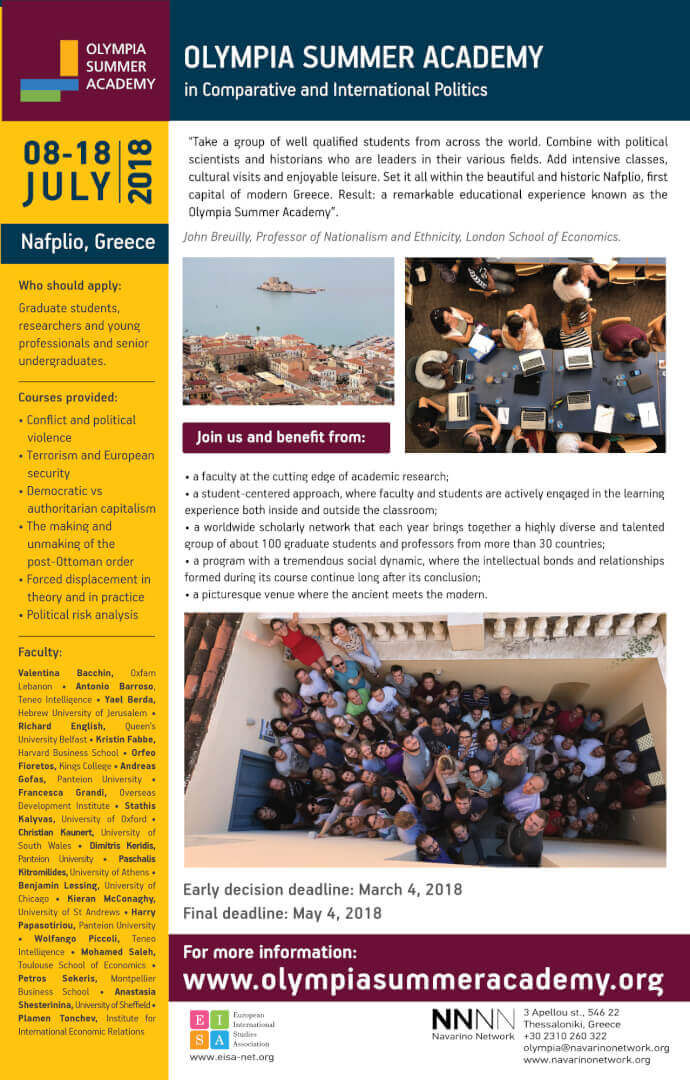
The Olympia Summer Academy, an intensive summer school in comparative and international politics for graduate students, young professionals and senior undergraduates, proudly presents its 2018 program. The 17th Olympia Summer Academy will take place from July 8 until July 18, 2018, in Nafplion in southeastern Greece.
The 2018 Academy consists of six cycles. As was the case in the past, a cycle is devoted to the study of political violence, terrorism and political risk. There are three cycles covering new subjects this year.
There is a new cycle on economic governance and the relationship of capitalism with democracy, a very timely subject as the rise of China has revived interest in authoritarian developmentalism.
There is a second new cycle on the multiple crises festering the Middle East under the rubric of the remaking of the international order that was established a hundred years ago with the end of World War I and the collapse of the Ottoman Empire.
Finally, a third new cycle, related to some extent to the previous one, is devoted to the refugee crisis that has dominated the headlines in recent years. This cycle aims to offer students a comprehensive understanding of the issues involved. While theory and practice have often been at odds when it comes to managing forced displacement, the cycle tries to reconcile both perspectives with a multi-disciplinary approach.
Please find here the call for applications for the 2018 Olympia Summer Academy. Please note that there are many opportunities for financial aid. Please read the information carefully and do not hesitate to contact us if you have any questions.
Apply now and join a select group of more than 1,000 proud “Olympians” from 70 different nations who excel in academia, business and politics worldwide today. Thanks to a combination of the in-class teaching and out-of-class activities and the high quality of both the faculty and the students, this can be a transformative experience that will help you achieve your career goals.
A: Conflict & Political Violence
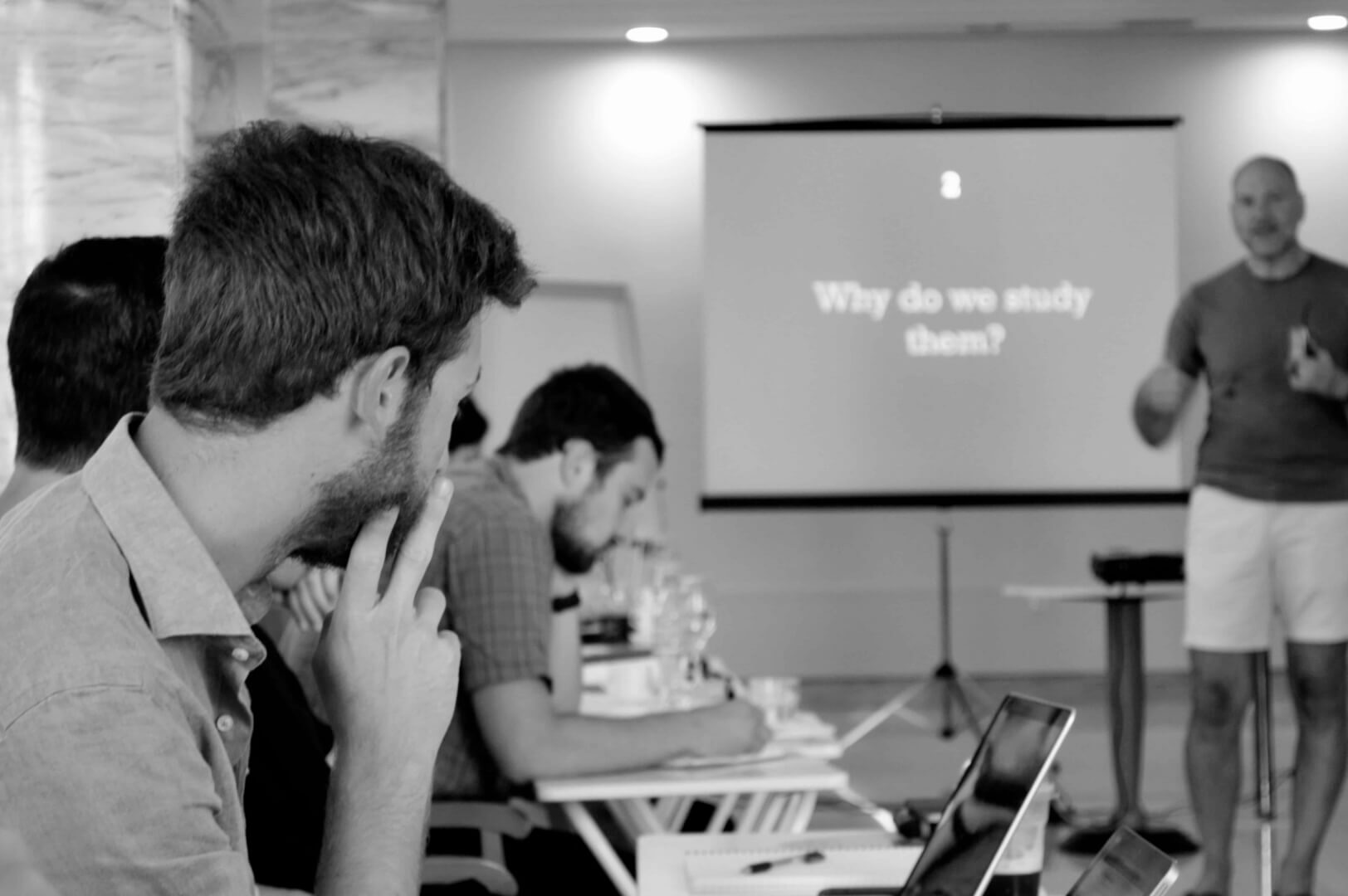
The goal of this course is to review the most recent developments in the field of conflict and political violence. In exploring the intersection of large-scale collective action and political violence, we will draw from several fields of research and methodological approaches and we will examine a broad cross-section of topics, including the causes and dynamics of civil war, ethnic conflict, mass violence, genocide, riots, and terrorism; the logic of rebel group formation, cohesion, and performance, and the dynamics of post-conflict violence, peacekeeping, and peace-building. Our geographic focus will be broad, reflective of the faculty’s diverse expertise. An integral part of the course is a workshop where students can present their ongoing research and receive feedback from faculty and peers.
Faculty
Richard English, Pro-Vice-Chancellor of Queen’s University Belfast, where he is also Professor of Politics and Distinguished Professorial Fellow in the George J. Mitchell Institute for Global Peace, Security and Justice.
Stathis Ν.Kalyvas, Arnold Wolfers Professor of Political Science, Yale University; Director of Yale’s Program on Order, Conflict, and Violence; Senior Advisor at the ‘Changing Character of Conflict Platform’, University of Oxford.
Benjamin Lessing, Assistant Professor, Department of Political Science at the University of Chicago; Co-Director of the Program on Political Violence, part of the Chicago Project on Security and Threats (CPOST).
Anastasia Shesterinina, Lecturer (Assistant Professor) in Politics/International Politics, Department of Politics, University of Sheffield.
B: Terrorism and European Security
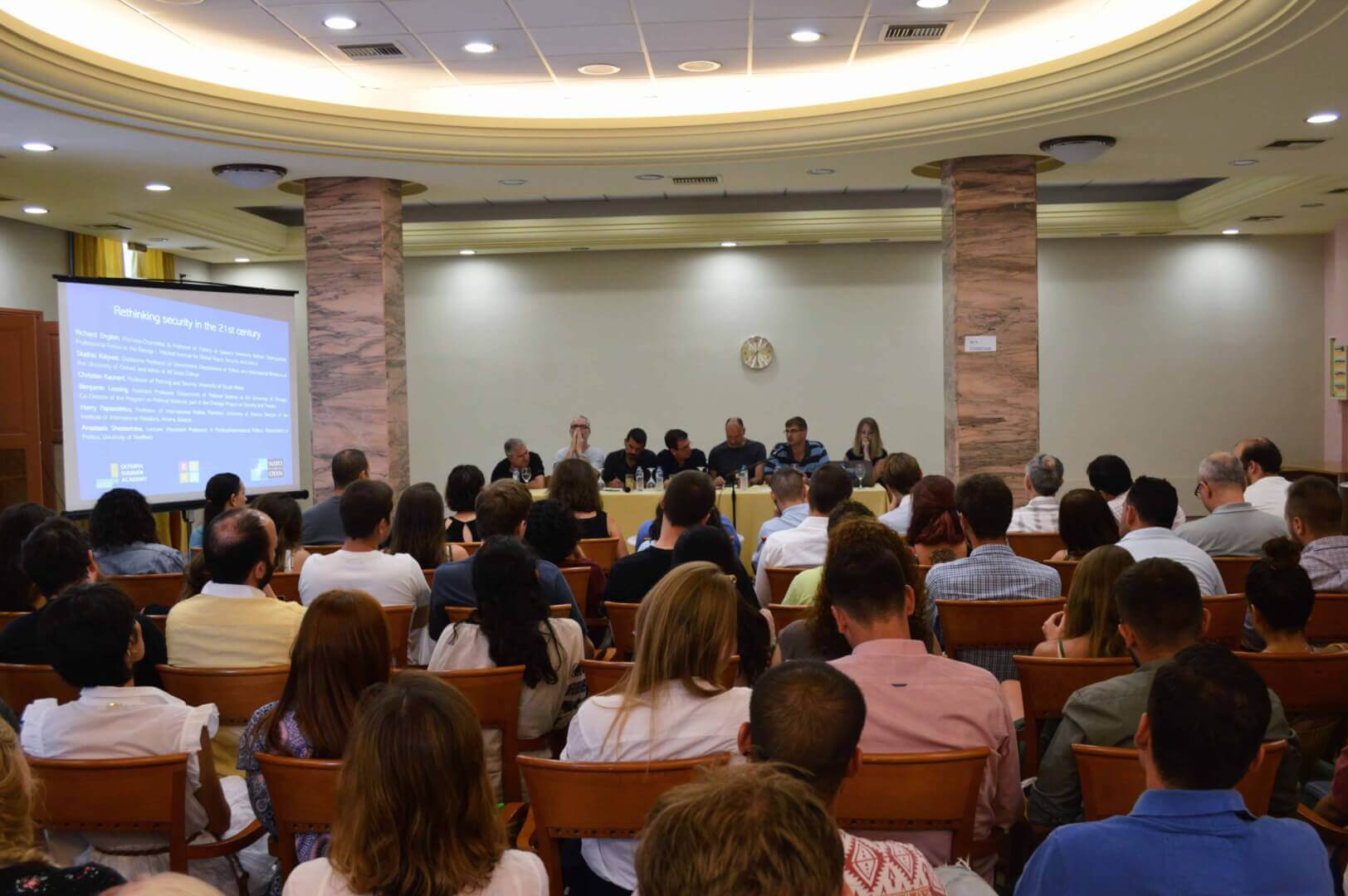
Terrorism, and our response to it, is among the most compelling of global political issues: it dominates news headlines, public anxiety, and political strategies alike. Yet few attempt to analyze systematically this pressing phenomenon. Surely, no amount of analytical precision will rid us of the existence of terrorism, but if we want to respond effectively to the policy challenge that it poses we need first to respond effectively to its analytical challenge. To this end, the course offers concentrated, in-depth exposure to the evolution and major characteristics of modern terrorism, its actors, strategies and modus operandi, as well as an understanding of the challenges this phenomenon presents to decision-makers and security establishments.
Topics that will be covered include: the place of terrorism within the broader context of political violence; the causes of terrorism; the strategic (in)effectiveness of terrorism; the conditions under which terrorist organizations come to an end; the rise of ISIS; the place of terrorism in the changing European security landscape; and the art counter-terrorism. An integral part of the course is a workshop where students can present their ongoing research and receive feedback from faculty and peers. The course will be a unique platform to engage in challenging debates and to consolidate a global research network in the fast-growing field of Terrorism Studies.
Faculty
Richard English, Pro-Vice-Chancellor of Queen’s University Belfast, where he is also Professor of Politics and Distinguished Professorial Fellow in the George J. Mitchell Institute for Global Peace, Security and Justice.
Andreas Gofas, Associate Professor of International Relations, Panteion University of Athens.
Stathis Ν. Kalyvas, Arnold Wolfers Professor of Political Science, Yale University; Director of Yale’s Program on Order, Conflict, and Violence; Senior Advisor at the ‘Changing Character of Conflict Platform’, University of Oxford.
Kieran McConaghy, Lecturer at the Handa Centre for the Study of Terrorism and Political Violence (CSTPV), University of St Andrews.
Harry Papasotiriou, Professor of International Politics, Panteion University of Athens; Director of the Institute of International Relations, Athens, Greece.
C: Political Risk Analysis
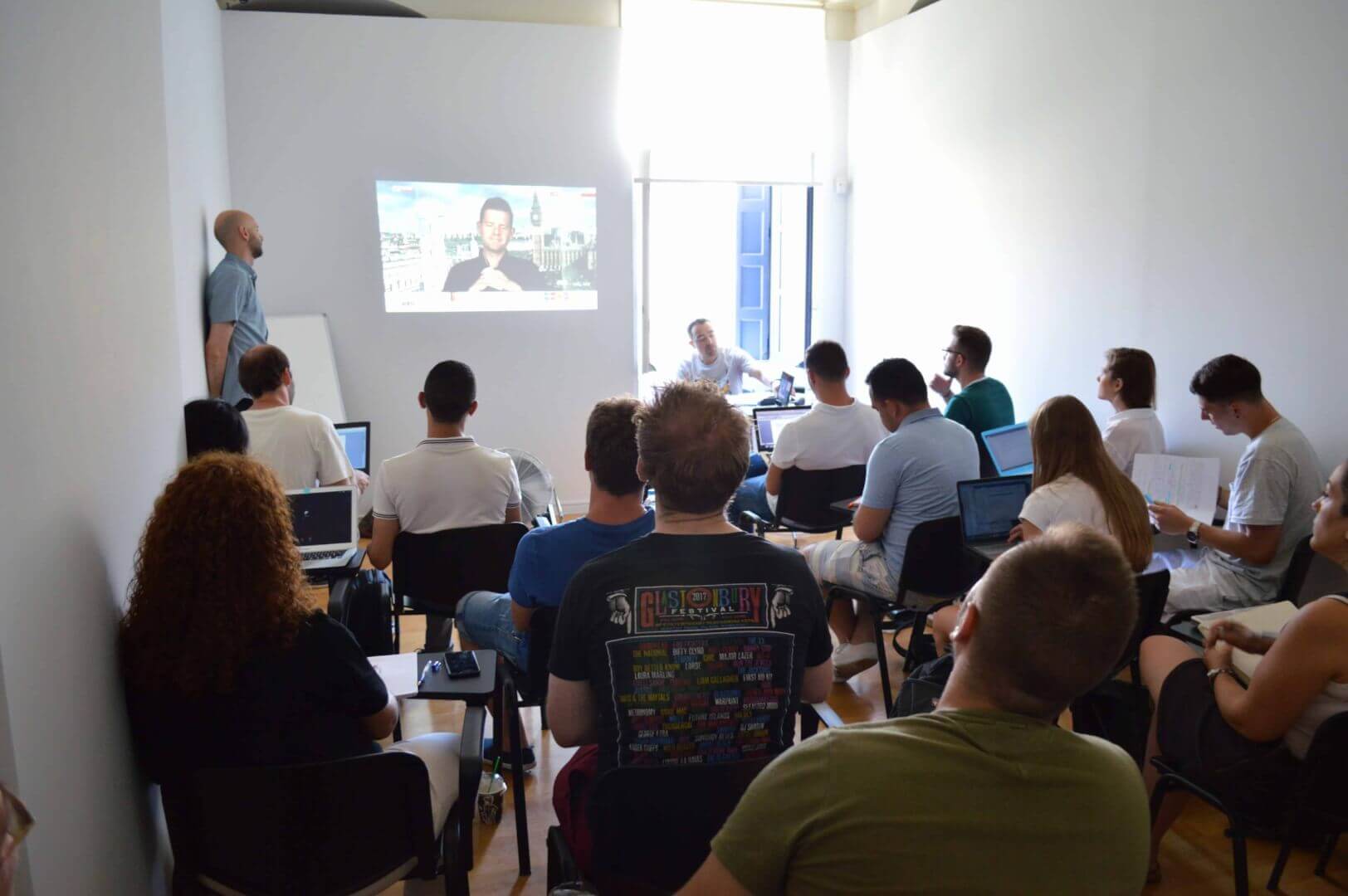
In recent times, financial investors and multinational corporations have become more aware of the need to “go beyond economics” and integrate political factors into their decision-making process. From rising populism in developed economies to increased political instability in emerging markets and geopolitical turmoil in the Middle East and Eastern Europe, politics lie behind the most important global market-shaping events. The objective of the course is to explore ways in which political risk can be analyzed and managed in a range of environments.
The course is structured to provide participants with a good theoretical understanding of the concept, but also with analytical tools to identify, trace and measure political trends that can affect business and investment interests. We will examine political risk in both emerging markets and developed economies and cover specific sources of risk such as political upheaval, expropriation, or protectionism. The course will rely heavily on case studies ranging from transnational to local examples. Simulations covering current political events will also be used in order to encourage a hands-on approach by participants and help them design strategies to manage and mitigate political risk.
Faculty
Antonio Barroso, Managing Director (Europe) and Deputy Director of Research, Teneo Intelligence.
Wolfango Piccoli, Co-President and Director of Research, Teneo Intelligence.
